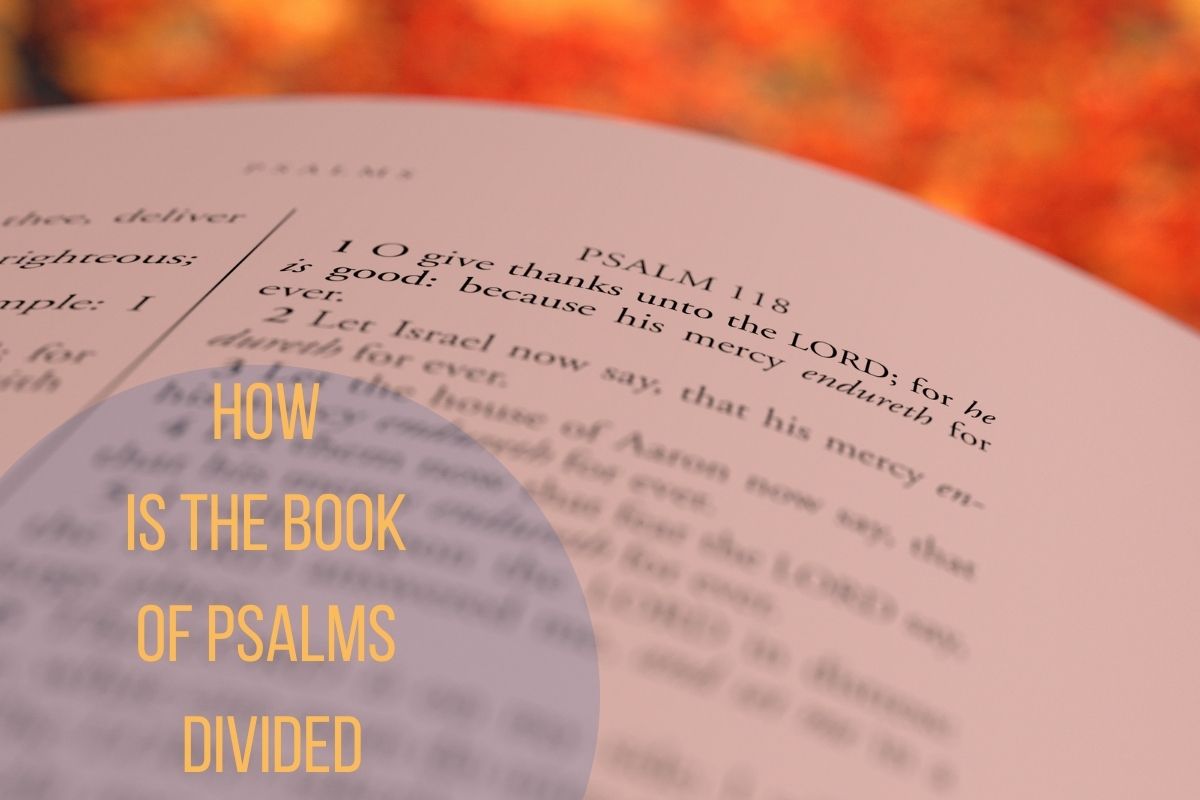Explore the fascinating structure of the Book of Psalms in this comprehensive guide, “Discovering How the Book of Psalms is Divided.” Uncover the hidden depths of this sacred text and gain insights into its organization and meaning. Understanding how the Book of Psalms is divided is essential for anyone seeking to explore its depths and glean wisdom from its verses. The Book of Psalms, often referred to as the Psalter, is one of the most beloved and widely read books in the Bible. Comprising a collection of ancient Hebrew poetry and hymns, it is known for its rich spiritual and emotional content.
Discovering How the Book of Psalms is Divided
To comprehend the division of the Book of Psalms, it is crucial to delve into its historical context.
Traditionally attributed to King David, many of the Psalms are believed to have been composed during his reign.
However, the book encompasses a broader range of authors, including Asaph, the sons of Korah, and others.
The Psalms served various purposes, such as expressions of praise, lament, thanksgiving, and supplication, making them a vital component of Israelite worship and spirituality.
The Division of the Book of Psalms
The Book of Psalms is divided into five distinct books or sections, each marked by a closing doxology. This division is not arbitrary but carries significant meaning.
Book 1: Psalms 1-41
The first book of Psalms, comprising Psalms 1 through 41, introduces readers to various themes and poetic styles found throughout the Psalter. This section includes some of the most well-known Psalms, such as the introspective Psalm 23 and the penitential Psalm 32.
Book 2: Psalms 42-72
The second book, consisting of Psalms 42 to 72, explores themes of longing, worship, and divine kingship. It contains the famous “As the deer pants for streams of water” Psalm 42 and the royal Psalm 72.
Book 3: Psalms 73-89
The third book, encompassing Psalms 73 to 89, delves into themes of suffering, divine justice, and the Lord’s covenant. Notable Psalms within this section include Psalm 84, expressing the longing for God’s dwelling place, and Psalm 89, which reflects on God’s faithfulness to His covenant with David.
Book 4: Psalms 90-106
Book four, comprising Psalms 90 through 106, continues to explore themes of God’s sovereignty and mercy. Psalm 90, attributed to Moses, is a reflective prayer, while Psalm 100 is a joyful hymn of thanksgiving.
Book 5: Psalms 107-150
The final book, Psalms 107 to 150, offers a diverse collection of Psalms. It includes expressions of praise, wisdom, and trust. Notable Psalms in this section include Psalm 119, the longest chapter in the Bible, and the powerful closing doxology in Psalm 150.
Additional Divisions
Besides the five-book division, the Psalms are also categorized based on authorship (e.g., Psalms of David) and themes (e.g., penitential Psalms, royal Psalms, and praise Psalms).
Purpose of the Division
The division of the Psalms into five books serves as a roadmap for readers, helping them navigate the vast collection with greater ease. It aids in understanding the overarching themes and purposes of each section, allowing readers to connect with the Psalms on a deeper level.
Interpretation and Application
Interpreting the Psalms involves recognizing their multifaceted nature. Some Psalms may be personal expressions of emotion, while others have prophetic or messianic significance. Readers can apply the Psalms to their lives by finding solace, inspiration, and guidance in the various themes and prayers found within.
Significance of the Book of Psalms
The Book of Psalms continues to hold immense significance for people of faith today. Its timeless wisdom, emotional depth, and poetic beauty make it a source of comfort and inspiration in times of joy, sorrow, and spiritual reflection. Beyond its religious importance, the Psalms have also influenced literature, music, and art throughout history.
Conclusion
In summary, the Book of Psalms is a remarkable collection of ancient Hebrew poetry and hymns, divided into five books with distinct themes and characteristics. Understanding this division enhances one’s appreciation of the Psalms and their enduring relevance in contemporary spirituality and culture.
FAQs
1. Who is traditionally attributed as the author of many Psalms?
- King David is traditionally attributed as the author of numerous Psalms, although other authors contributed as well.
2. What is the significance of the division of the Psalms into five books?
- The division into five books provides structure and aids in understanding the themes and purposes of different sections.
3. Can the Psalms be applied to modern life and worship?
- Yes, the Psalms offer timeless wisdom and emotional depth, making them relevant for personal reflection and contemporary worship.







